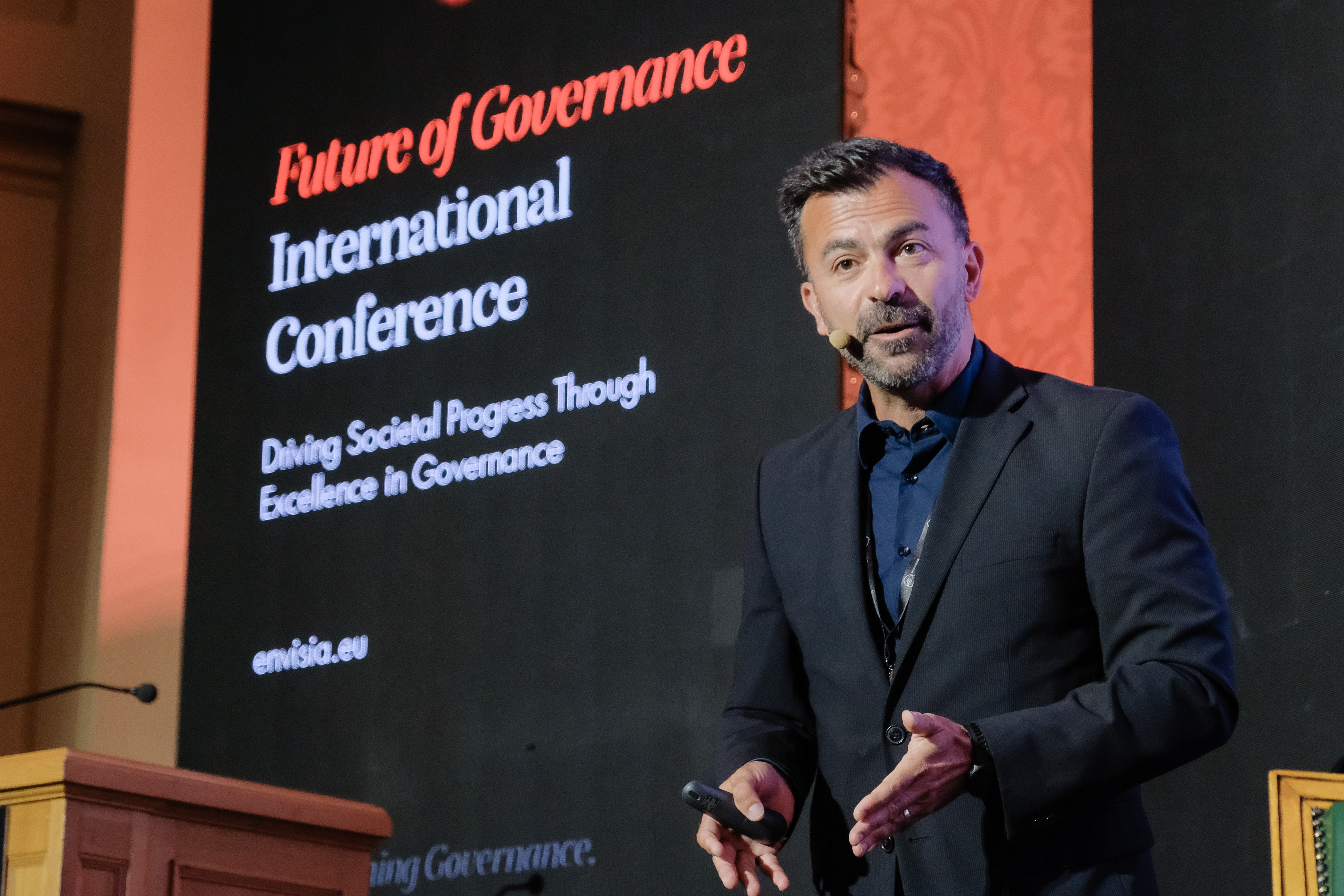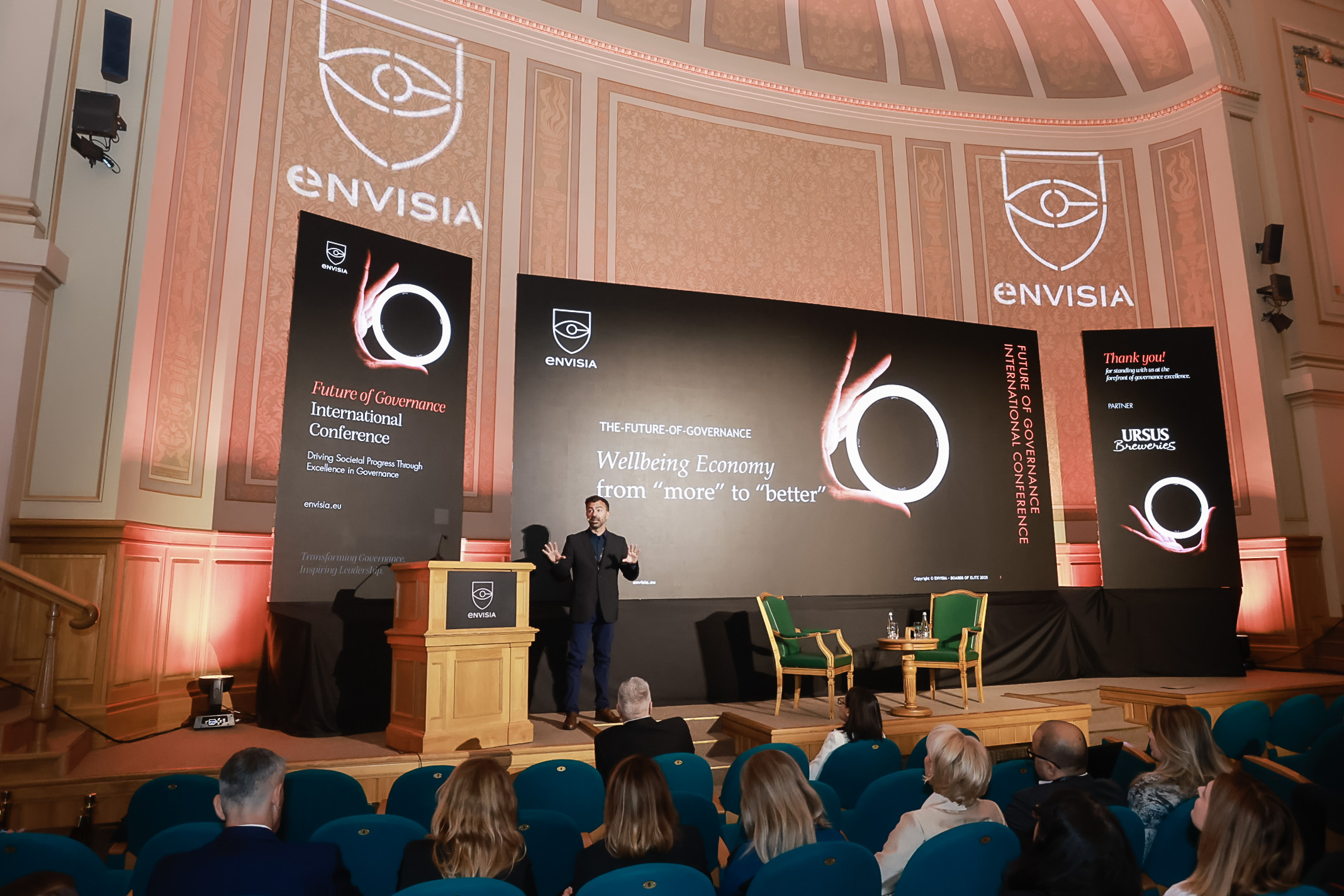From “More” to “Better”: Rethinking Governance for a Wellbeing Economy

At a time when multiple crises converge — climate instability, social fragmentation, economic insecurity, and institutional fatigue — the need to redefine how we measure progress and purpose has never been more urgent. Traditional economic frameworks are increasingly inadequate to address the complexities of our interconnected world.
In this context, the wellbeing economy can be the answer. And this shift is not limited to academic discourse. A recent Earth4All survey across 17 G20 countries revealed a strong public mandate for change:
- 68% support prioritizing wellbeing over profit and GDP growth.
- 71% demand immediate climate action.
- 62% believe national success should be measured by the health and wellbeing of citizens, not economic output.
- Only 39% trust their governments to make decisions in the public’s interest.
These results underscore an erosion of institutional trust and a growing appetite for systemic reform—insights echoed by One Nature Institute and the OECD’s How’s Life? report. The latter documents significant inequalities in income, housing, emotional wellbeing, and trust, even in wealthier OECD nations. Nearly 40% of households are financially insecure, and depressive symptoms are on the rise across the region.
This was the central theme of the keynote address delivered in May by Lorenzo Fioramonti, respected political economist, former Italian Minister of Education, and member of the Club of Rome, at the Future of Governance International Conference 2025 in Bucharest.
But what is the wellbeing economy?
The concept of a wellbeing economy challenges the dominant narrative that economic growth — measured solely by GDP — is the ultimate measure of societal success. Instead, it places human flourishing, environmental sustainability, and social cohesion at the heart of policy and governance. In a wellbeing economy, progress is assessed through indicators such as health, education, equality, environmental quality, and trust in institutions — not merely through production and consumption statistics.
A growing number of governments—including New Zealand, Scotland, Iceland, and Finland—have begun embedding wellbeing metrics in public policy, budgeting, and governance practices through initiatives such as the Wellbeing Economy Governments partnership (WEGo). The OECD, through its Well-being Framework, and the World Health Organization’s Geneva Charter for Wellbeing (2021), have also embraced this systemic approach to long-term societal resilience.
In his keynote speech, Lorenzo Fioramonti underscored that what we face today is not a temporary crisis, but a profound systemic collapse. “We have consumed so fast that we’ve accelerated the breakdown of planetary systems,” he cautioned.
He referenced data illustrating that, since the 1970s, while GDP and consumption have continued to rise, indicators of life satisfaction, mental health, and community wellbeing have declined. He pointed to real-world evidence, from water rationing in advanced economies like Italy to the rise of social isolation as a leading cause of mortality in the UK. “We've grown the economy, but reduced satisfaction,” he said, highlighting a decoupling between material wealth and quality of life.
Fioramonti’s address was not merely diagnostic—it was a vision for reform. He advocated for governance that orients itself around clear, purpose-driven goals rooted in social and environmental wellbeing.
In this context, he argued, governance must move beyond “more” — the perpetual quest for growth — and reorient itself towards “better” - policies and practices that enhance the quality of life for all:
- Better performance: change productivity indicators, new financial rewards and professional development
- Better work-life balance: increase productivity, reduce sick leave, improve child upbringing, more time for community engagement
- Better production and consumption: more durability, invest in circular economies
- Better impact for business: from an extractive paradigm to a regenerative paradigm
- Better leadership: inclusive goals, long-term approach, systems thinking

Reimagining Governance: Purpose and Direction
Fioramonti reminded that governance derives from the ancient terms kubernnáo and gubernantia — to steer or direct. Yet today, governance often lacks a clear direction, becoming a form of management disconnected from purpose.
He challenged the audience to see governance not as a mechanism for maximizing GDP, but as a system for creating value that sustains people and the planet. Fioramonti cited Italy’s pioneering efforts in developing wellbeing indicators that complement — and eventually surpass — GDP as a measure of progress. He also referenced New Zealand’s Wellbeing Budget, which allocates resources based on improving life quality, health, and education outcomes rather than simply economic output. “These are not utopian ideas,” he stressed. “They are practical, real-world examples that show it’s possible to redefine success in a way that is meaningful and inclusive.”
Equipping Leaders for a Wellbeing-Driven Future
This change in how we define success and leadership cannot happen without advanced education that supports new governance paradigms. The Postgraduate Certificate in Board Practice and Directorship, developed by Henley Business School in partnership with Envisia – Boards of Elite, provides a rigorous academic and practical foundation for board members and senior professionals committed to systems thinking, sustainability, and impact-driven leadership. As economies transition toward wellbeing-focused models, this kind of board education is no longer optional — it is essential. Applications are open until September 5 here.
What comes next?
For Romania and countries facing similar challenges, the message is clear: develop national indicators of wellbeing that reflect the realities and aspirations of citizens. This shift requires leaders who are willing to challenge traditional economic narratives and embrace governance models that are regenerative, human-centered, and forward-looking.
Fioramonti’s closing call to senior leaders is unequivocal: “We must be the ones to offer a better vision of the future — one where governance is measured not just by numbers, but by the quality of life it creates.”
Moving Beyond GDP
As Fioramonti emphasized, GDP was never designed to measure wellbeing or societal success. By continuing to chase it as our primary metric, we risk undermining the very systems — social, ecological, and economic — on which our collective future depends.
His address was a call to senior professionals across sectors: it is time to move from a governance model that seeks endless growth to one that seeks sustainable, shared, and meaningful progress.
The challenge now is to translate this vision into policy, practice, and cultural transformation. For leaders across business, government, and civil society, the question is no longer if we need a wellbeing economy—but how we build it.
Recommended articles
Digital Transformation & AI Governance
Leadership, Boardroom Dynamics & Crisis Response
Leadership, Boardroom Dynamics & Crisis Response
Governance & Board Effectiveness
Future of Boards & NED Careers
Future of Boards & NED Careers
ESG & Risk Oversight
Leadership, Boardroom Dynamics & Crisis Response
Governance & Board Effectiveness
Governance & Board Effectiveness
Leadership, Boardroom Dynamics & Crisis Response
Future of Boards & NED Careers
Governance & Board Effectiveness
Governance & Board Effectiveness
Governance & Board Effectiveness
Governance & Board Effectiveness
Future of Boards & NED Careers
Leadership, Boardroom Dynamics & Crisis Response
Future of Boards & NED Careers
 BACK TO ARTICLES
BACK TO ARTICLES
 Facebook
Facebook Linkedin
Linkedin
